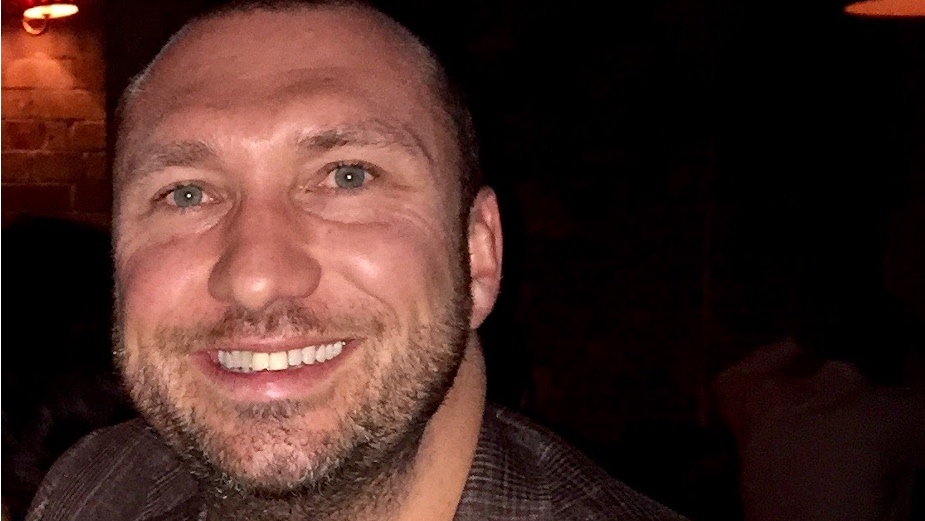Duncan Harriss: Could Covid-19 Actually Bring Us Closer Together?

Limehouse managing director and creative partner Duncan Harriss on how we are moving through and experiencing The Five Stages of Grief whether we’re conscious of it or not…
We have had time to reflect these past few months. I keep coming back to the thought that perhaps this experience will bring us closer together. I believe that we are currently moving through and experiencing The Stages of Grief, whether we’re conscious of it or not…
You may be familiar with the five stages of grief most often discussed, which are: denial, anger, bargaining, depression, and acceptance. I have been through these stages myself having lost a close family member when I was young. Being able to identify what I experienced was something that I was only able to do with hindsight.
I learned then that there are in fact 12 stages and found, as I do now, many of the additional stages more relatable. It is unfortunately very difficult to recognise your journey at the time, and it is only in time that the positives are evident; stages of hope, helping others, new strengths, and new relationships. But just recognising the journey and knowing that there will eventually be positives can be helpful. It certainly was to me.
So, of recent I have been trying to observe where I myself and my colleagues and clients are at, and try to look ahead see what positive learnings I can take away.
Who We Are
I am one of the founders of a production company, Limehouse. We are fortunate both in that we are based in Australia where community transmission rates of the virus are low and that our business and way of working is adaptable. Limehouse was modelled to offer both production and post, for all channels. This was borne of a belief that to choose the best route to production one must be able to objectively consider all the paths. A benefit of course is that it gives us options to find new routes when some are made difficult or impossible, as during Covid.
We extended this approach to how we structure our team. For any significant production we scale up, and choose a photographer, director, crew, and skilled post artists to supplement our in-house team, selected for their areas of specialisation and fit to the project. As an independent, our only bias is to who is the best fit. Adaptability, openness, trust, and objectivity are our founding values. Thinking about what got me through difficult times before, and my team through this period, it is these same values.

The (Surprising) Positives
As strange as it may sound, being apart from colleagues seems to have provided us with a ‘protective’ space to say things we wouldn’t normally say. Both myself and my team have shared in times of stress, and as a result have resolved things that have sat around unsaid in the tight proximity of a studio environment. Knowing that you won’t see your colleagues for a week or two and that they might put it down to ‘everyone is stressed’ has actually given us more freedom to share.
This seems to have reached and affected our clients similarly. For example, my team tells me that they have spent more time chatting with creatives individually, or in small groups, than they ever have in the past in pre-production meetings with large audiences. These shorter, more direct conversations often from the comfort of home tend to be far more productive, often allowing them to get greater insight into the idea. This has allowed many creative conversations to flourish.
Interestingly, I think that how we communicate has also changed. Already having so many diverse ways to connect with each other, and a news overload during Covid, has resulted in many of us feeling overwhelmed. Myself and many others disconnected; but slowly I’ve tuned back in, and I’m now more selective about what I allow, when, on what platform, and how I let it notify and ‘interrupt’ me. I’ve now found ways to communicate less frequently with my team, but with more focus. And my team has reported a similar shift in the way they now communicate with each other. We’ve found the best ways to utilise the multitude of communication tools at our disposal is when given a specific and focused / limited use.
I’ve learnt we can minimise the noise, remove unnecessary meetings and conversations, and separate our time better, into alone space to reflect and more meaningful and focused collaborative time together. Who hasn’t asked a colleague (or a partner!) a question just because the other person is there, rather than look themselves!
Before, I rarely considered WFH important. We worked from home with overseas clients and from shoot locations, otherwise from the studio whenever possible. But I was wrong. We’ve come to the conclusion that both WFH and time in the studio are equally important. Indeed, it is the only effective way to work. To that end, we have doubled down on investments in making both scenarios more comfortable. Home for distraction-free work and balance and the studio for community and conversation. Continue reading on LBB…
